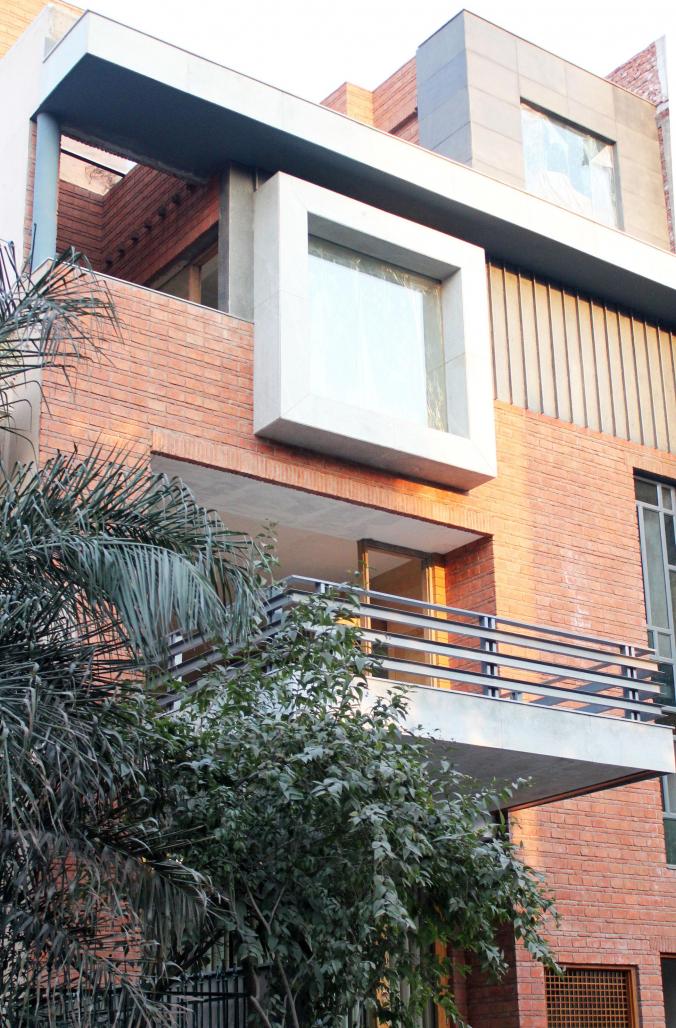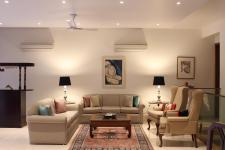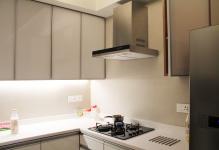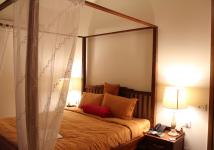The owners wanted to incorporate their large art collection in their new home along with the requirement of additional living arrangements for a family of two generations. Situated directly opposite an earlier project designed by AKDA (Transformation, 2010), they chose to frame the views to the same mango tree that shades the earlier house.
The project was designed with three distinct zones- a ground floor apartment, a basement gallery space for the daughter’s art collection and a duplex apartment on the upper floors for the owners. There is a large courtyard that can be looked into from the formal living areas and a smaller one brings light to an internal stair for the upper apartment. A stepped arrangement of verandahs on the north corner brings light and green views to the lounge areas on all floors.
The interiors are finished in muted tones of white. The regular dark tones of wood finishes were eschewed in favour of the blonde, honey coloured quality of oak wood and a similarly light cream coloured stone has been used to create a neutral, yet domestic backdrop to the art on display. A structural wood stair, dramatically lit from below, descends to the basement from within the house. On the terrace, a deep verandah opening onto the garden makes a relaxing space for evening dining. The walls are raised to avoid the unsightly views and the only thing that can be seen is the sky.
The house takes its name from the early 20th century art movement, which helped spawn the modern movement in architecture. The hallmark of the original De Stijl House, the Rietveld-Schröder House (Utrecht) was to make a building that seemed to be composed entirely of surfaces and volumes that were gliding past each other, dissolving the boundaries of inside and outside. A long window is designed in the vein of Mondrian’s paintings, a composition of rectangles and squares in various proportions and colours. The overall facade continues the same theme, with various elements first being designed as a composition of horizontal and vertical rectangles and then given contrasting material finishes. Brick, Grey Granite and Exposed Concrete were chosen for their longevity and colour.
2011
2013
Amit Khanna










